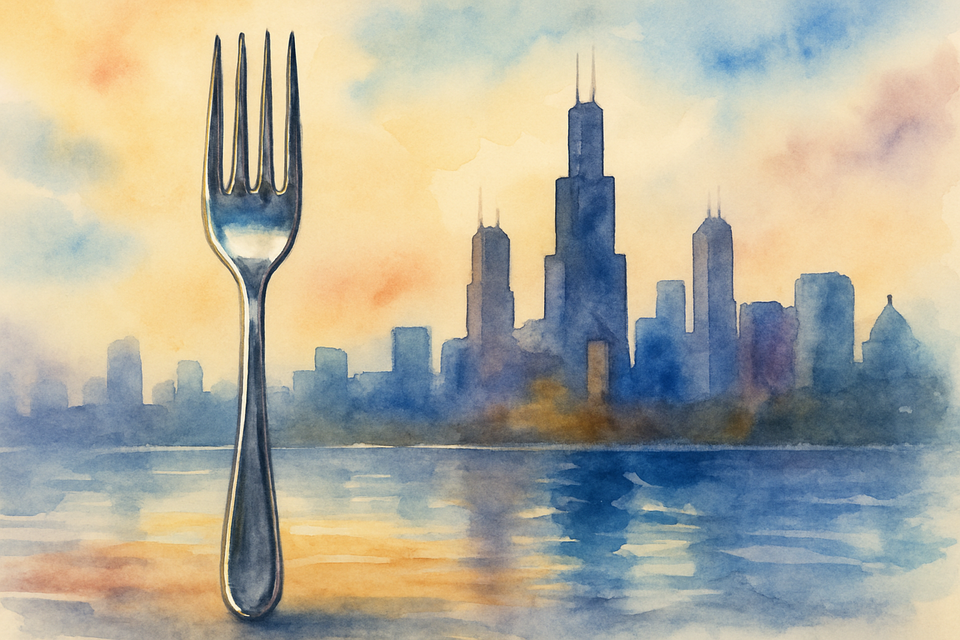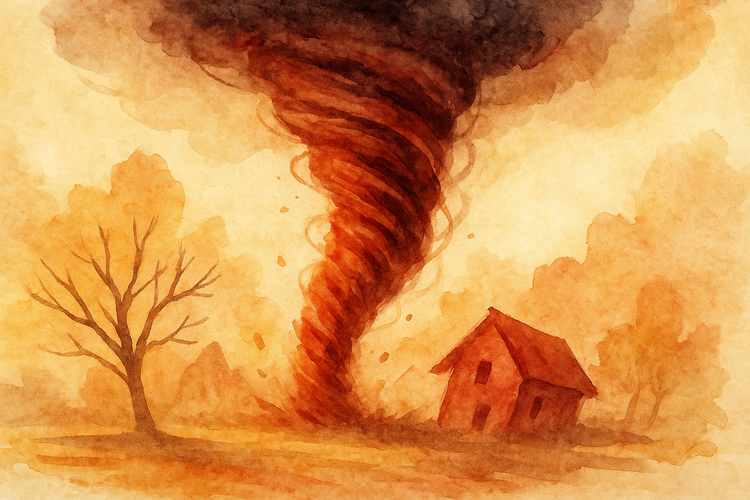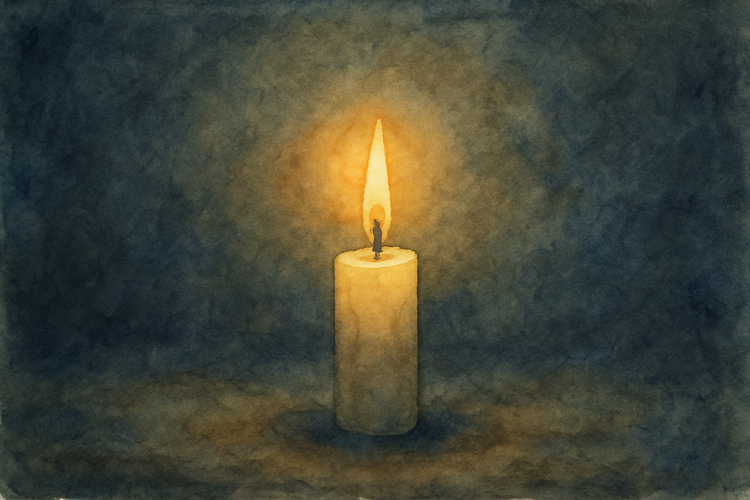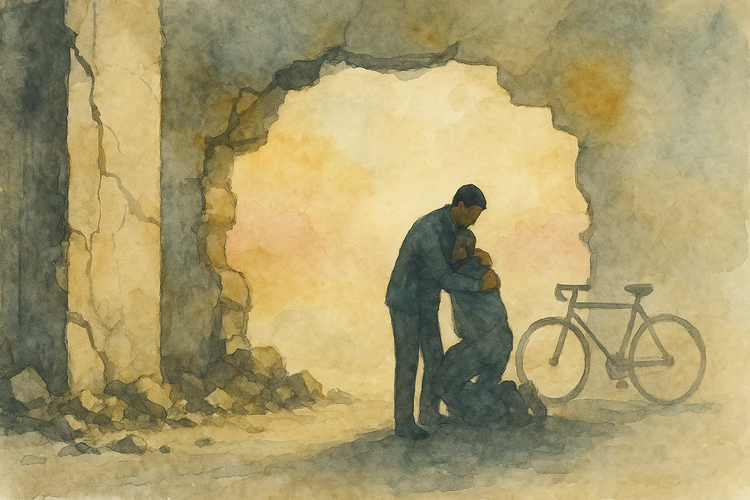The Bear S2E7 "Forks"

Spoilers ahead for Season 2 of The Bear.
Forks and Punishment
From the first moments of “Forks,” Richie wears his bitterness openly. Dragging himself out of bed before dawn, he treats the day like a sentence handed down by someone who no longer believes in him. By the time he steps into the gleaming restaurant, resentment has already taken root. Everything here feels like a rebuke: the polished surfaces, the quiet order, the effortless precision that makes his own world of corner booths and neighborhood regulars seem shabby by comparison. He suspects Carmy knew exactly what he was doing — sending him here not to grow, but to be humiliated.
When a tray of forks is set in front of him, the suspicion hardens. This is punishment, he thinks, proof that he is irrelevant. Richie has never been one to shrink from work, but this isn’t work in his mind — it is dismissal, busywork that says he does not belong. Then his trainer adds a simple line: “Great, let me give you some purpose then.” At first Richie bristles, hearing only condescension. But something in the phrasing lingers. Even in his resentment, the word purpose presses against the shell he’s built, the first hairline crack in the belief that he has been written off.
Every Second Counts
That crack widens as Richie observes how the restaurant carries itself. He never sees the infamous smudge — the flaw was on a plate during a previous service — but the staff is still talking about it, still rattled by the way one imperfection threw off the timing of an entire evening. To Richie, used to a world where yesterday’s chaos is forgotten as soon as the doors open again, the memory feels strange. But slowly he understands: it isn’t obsession for its own sake. It is devotion.
Here, every detail is treated as essential, every moment weighted with care. The mantra he hears — every second counts — reframes what he thought he knew. Respect isn’t about toughness or volume; it is about precision, humility, and the willingness to treat even the smallest task as if it matters. Richie, unsettled but intrigued, tries the words out for himself: “I can do respect.” It isn’t swagger this time. It’s a flicker of recognition, an admission that he has glimpsed another way of moving through the world.
The Call from Tiff
Into this fragile opening comes a call from Tiff. She tells Richie she’s engaged, and the words land like a blow. In another season, he might have imploded — spiraling into bravado, drinking too much, calling her back to plead or to lash out. But here, surrounded by people who treat timing and detail as sacred, he holds steady. The pain does not disappear, but it doesn’t unravel him either. He absorbs the news, returns to his work, and lets the rhythm of the kitchen carry him.
It is a quiet moment, almost invisible. But it marks a turn. Richie chooses not to collapse, not to throw his grief back into the world as noise. He lets it settle inside him, contained by the discipline he has begun to respect.
The Deep-Dish Revelation
The real turning point comes when Richie shadows his trainer through service. He watches, fascinated, as even whimsical touches like hibiscus clouds of cotton candy are treated with reverence. What once would have looked absurd now feels like artistry, and Richie finds himself leaning in instead of sneering.
Then the opportunity arrives. A guest has requested deep-dish pizza, and Richie seizes the chance. He bolts into the street, sprinting through the city to fetch it, then races back, clutching the box as though the evening depends on it. Breathless but grinning, he doesn’t wait to be told what to do — he asks if he can take it to the table himself. The guest’s delight in receiving it floods Richie with a revelation. All the forks, all the timing, all the talk of smudges and seconds have been leading to this: a single person made to feel cared for.
In that moment, Richie understands that service isn’t punishment. It’s purpose. It’s respect, offered outward instead of demanded inward. The bitterness that weighed him down begins to lift, replaced by exhilaration.
Communion with the City
Richie drives through Chicago at night, the city opening around him as Taylor Swift’s “Love Story” plays. The images are simple — skyline, river, the Ceres statue — but they land differently now. Earlier, in Ceres (S1E6), that same figure symbolized fear: flaws hidden for years suddenly exposed when the city rose higher. Here, the image is transformed. It no longer speaks of exposure or obsolescence, but of belonging, of possibility.
The montage is more than atmosphere. It reframes Richie’s relationship to his home. For years he has seen Chicago as a place that trapped him, a backdrop to bitterness. Now, through the lens of service and respect, it looks luminous. The city hasn’t changed. Richie has. And the city meets him differently because of it.
Never Too Late
The next day, Richie ends his stage not in frenzy but in quiet conversation. Side by side with the head chef, peeling mushrooms, he listens as they talk about what makes a life worthwhile. The chef’s words fall gently but firmly: it is never too late to start over. For a man who has long believed himself stuck — Michael’s shadow, Carmy’s burden, the neighborhood’s failed loudmouth — the line feels like permission. He doesn’t have to stay frozen. He can still begin again.
When Richie later learns that Carmy didn’t send him here to humiliate him but because he trusted his gift with people, the reframing is complete. The punishment he imagined turns out to be kindness, an act of belief. Every second counts, and Richie now knows how he wants to spend his seconds: in service, in respect, in purpose.
Answering the Question of Purpose
At the start of the season, in Beef (S2E1), Richie sat with Carmy in the gutted remains of The Beef and asked the question that haunted him: did Carmy ever think about purpose? It sounded like despair, the voice of a man terrified he had already been left behind.
“Forks” answers that question with clarity. Purpose is not inherited through Michael, not clung to through swagger, not even borrowed from Carmy. It is chosen in service — in the daily acts of respect that make every second matter. Driving through his city, suited and steady, Richie no longer looks like a man searching for what was lost. He looks like someone who has found a way forward.
Richie’s transformation doesn’t erase the pain of his past, but it reframes it. He is no longer circling dead ends. He is in motion. For once, Richie has discovered that it is never too late to begin again.



Comments ()